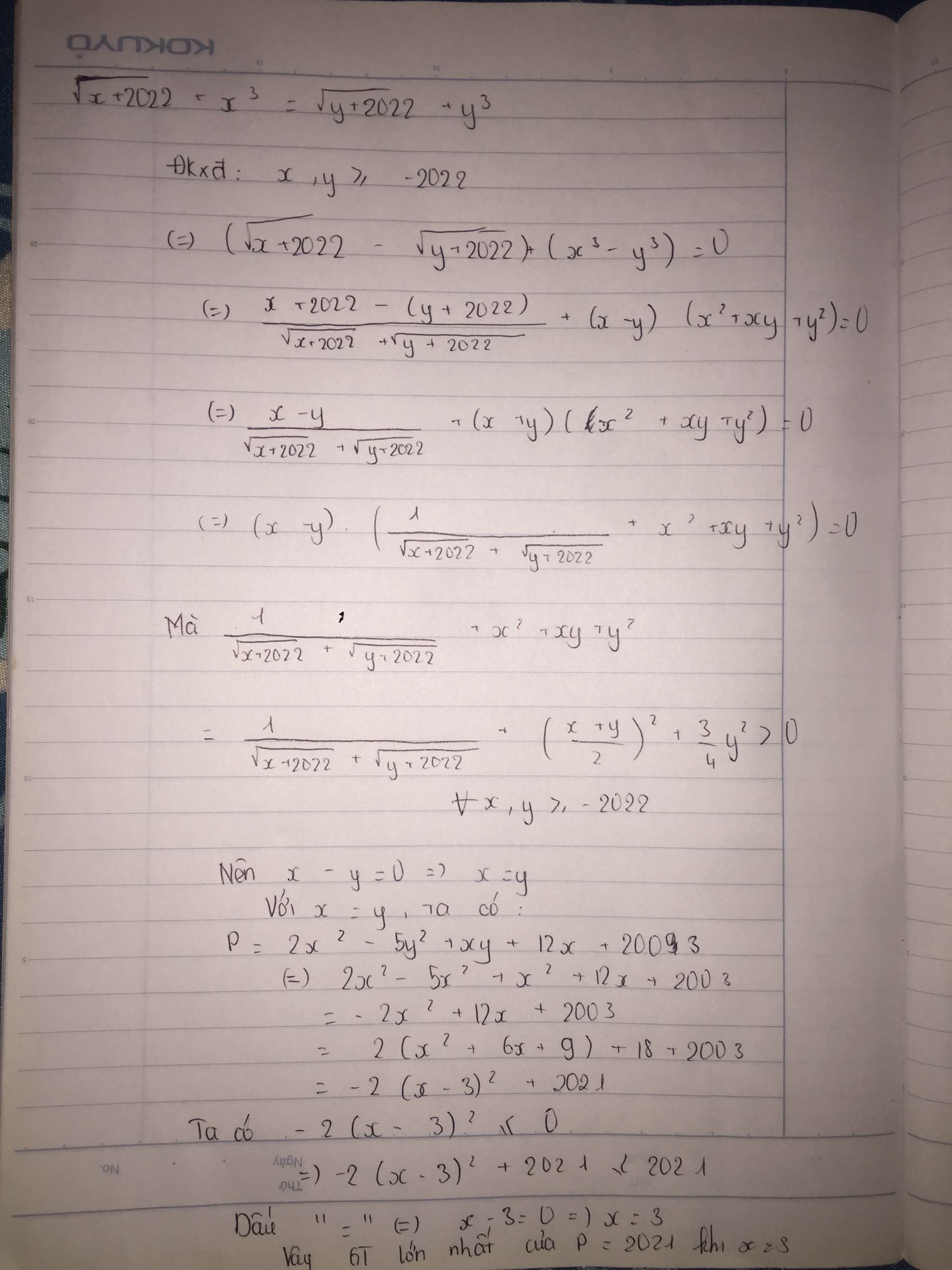
Hãy nhập câu hỏi của bạn vào đây, nếu là tài khoản VIP, bạn sẽ được ưu tiên trả lời.


Với các số thực không âm a; b ta luôn có BĐT sau:
\(\sqrt{a}+\sqrt{b}\ge\sqrt{a+b}\) (bình phương 2 vế được \(2\sqrt{ab}\ge0\) luôn đúng)
Áp dụng:
a.
\(A\ge\sqrt{x-4+5-x}=1\)
\(\Rightarrow A_{min}=1\) khi \(\left[{}\begin{matrix}x=4\\x=5\end{matrix}\right.\)
\(A\le\sqrt{\left(1+1\right)\left(x-4+5-x\right)}=\sqrt{2}\) (Bunhiacopxki)
\(A_{max}=\sqrt{2}\) khi \(x-4=5-x\Leftrightarrow x=\dfrac{9}{2}\)
b.
\(B\ge\sqrt{3-2x+3x+4}=\sqrt{x+7}=\sqrt{\dfrac{1}{3}\left(3x+4\right)+\dfrac{17}{3}}\ge\sqrt{\dfrac{17}{3}}=\dfrac{\sqrt{51}}{3}\)
\(B_{min}=\dfrac{\sqrt{51}}{3}\) khi \(x=-\dfrac{4}{3}\)
\(B=\sqrt{3-2x}+\sqrt{\dfrac{3}{2}}.\sqrt{2x+\dfrac{8}{3}}\le\sqrt{\left(1+\dfrac{3}{2}\right)\left(3-2x+2x+\dfrac{8}{3}\right)}=\dfrac{\sqrt{510}}{6}\)
\(B_{max}=\dfrac{\sqrt{510}}{6}\) khi \(x=\dfrac{11}{30}\)
a)Ta có:A=\(\sqrt{x-4}+\sqrt{5-x}\)
=>A2=\(x-4+2\sqrt{\left(x-4\right)\left(5-x\right)}+5-x\)
=>A2= 1+\(2\sqrt{\left(x-4\right)\left(5-x\right)}\ge1\)
=>A\(\ge\)1
Dấu '=' xảy ra <=> x=4 hoặc x=5
Vậy,Min A=1 <=>x=4 hoặc x=5
Còn câu b tương tự nhé


a) Để A có nghĩa :
\(\Rightarrow\sqrt{2x+3-x^2\: }\Leftrightarrow2+\sqrt{2x+3-x^2}\ge2\forall x\)
\(\Rightarrow\sqrt{-\left(x-1\right)^2+4}\ge0\)
\(\Leftrightarrow-\left(x-1\right)^2\ge-4\)
\(\Leftrightarrow\left(x-1\right)^2\le4\)
\(\Rightarrow3\ge x\ge-1\)
Vậy.....



\(A=\sqrt{3-2x^2+2x}=\sqrt{-2\left(x^2-x+\frac{1}{4}\right)+\frac{7}{2}}=\sqrt{-2\left(x-\frac{1}{2}\right)^2+\frac{7}{2}}\le\sqrt{\frac{7}{2}}\)
Vậy maxA = \(\frac{\sqrt{14}}{2}\)đạt được khi \(x=\frac{1}{2}\)

đk x2 - 2x \(\ge\) 0 => x \(\in\) (-\(\infty\); 0] \(\cup\) [ 2; + \(\infty\))
\(\sqrt{x^2-2x}\) \(\ge\) 0
- \(\sqrt{x^2-2x}\) \(\le\) 0
A \(\le\) 3 => A(max) = 3 <=> x2 - 2x = 0 \(\left[{}\begin{matrix}x=0\\x=2\end{matrix}\right.\)